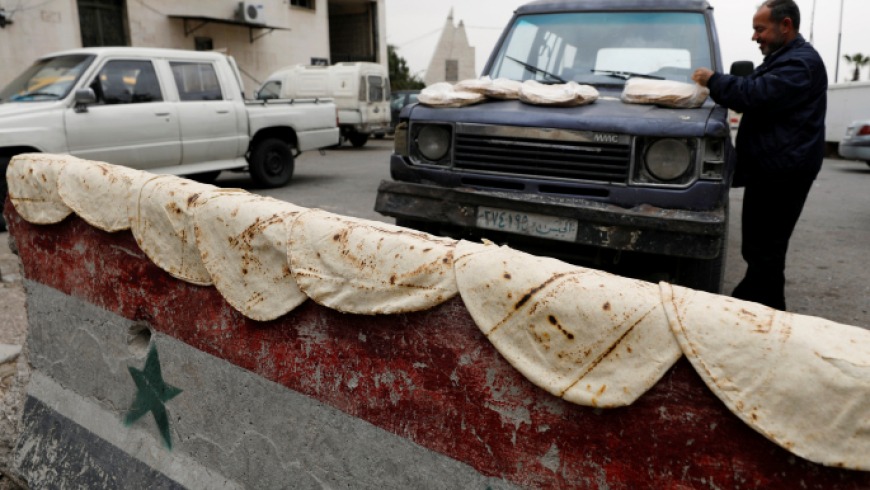Syria’s escalating bread crisis has brought to light a brutal reality: starvation as a tool of control. Over recent months, the bread shortage has worsened due to multiple factors, including a severe fuel crisis and skyrocketing prices, which have forced many bakeries in Damascus and its surrounding areas to shut down. Compounding this issue is the influx of refugees from Lebanon, further straining the demand for bread. Meanwhile, government policies have reduced the allocations of subsidized bread per person and have yet to offer clear solutions, fueling widespread discontent among the population.
The Syrian government has cited economic hardships, international sanctions, and resource scarcity as reasons for the dwindling subsidies. Recent government statements underscore the financial burden of bread subsidies, revealing that the cost of producing a bundle of bread is 8,400 Syrian pounds, while it is sold to citizens at a mere 400 pounds. Officials claim these losses justify a shift towards direct cash support, arguing it would curb corruption and inefficiencies. However, such measures have only deepened the food crisis, forcing many Syrians to resort to the black market, where bread and other essentials are sold at exorbitant prices.
This policy shift aligns with broader government efforts to reduce public spending under the guise of more “efficient” support allocation. Yet, these changes have excluded hundreds of thousands of Syrians from government aid, often based on arbitrary criteria that disregard their dire economic circumstances. The resulting pressure has exacerbated the already fragile food security in Syria, leaving many families struggling to survive.
Despite their resilience, Syrians face an unrelenting crisis, with little hope for improvement. Decades of compounded hardship have eroded their optimism, and for many, the dream of a better life has been replaced by the simple aspiration to leave the country altogether.
Starvation as a Weapon of War
Starvation has long been wielded as a psychological and physical weapon to subjugate populations, often as part of broader political or military objectives. Throughout history, tyrannical regimes have exploited food scarcity to crush dissent and consolidate control. The Syrian regime has refined this cruel tactic, using starvation as a cornerstone of its strategy against its own people.
During the conflict, the regime imposed devastating sieges on areas like Homs and Eastern Ghouta, depriving residents of food and basic supplies to force political concessions. Entire communities were displaced, their homes seized and repopulated by newcomers. Food and humanitarian aid were barred from entering besieged regions, creating a suffocating environment of military and economic blockades.
In more recent years, this tactic has taken new forms. The destruction or confiscation of agricultural crops, combined with the manipulation of food markets to inflate prices, has made essential goods inaccessible to the poor. This deliberate strategy has not only perpetuated hunger but also created a stark divide between the wealthy elite—many of whom have profited from the war—and the impoverished majority.
Starvation as a Crime
Under international humanitarian law, starvation as a weapon of war constitutes a crime. Yet it continues to be employed in Syria and other conflict zones, both directly and indirectly, to achieve political and military goals.
The plight of Syrians serves as a grim reminder of how regimes can weaponize basic human needs to suppress dissent and maintain control. As the bread crisis intensifies, it reflects not only an economic collapse but also the calculated use of hunger to strip people of their dignity and autonomy. For the millions enduring this suffering, access to food is no longer a right—it has become a tool of subjugation.
This article was translated and edited by The Syrian Observer. The Syrian Observer has not verified the content of this story. Responsibility for the information and views set out in this article lies entirely with the author.


